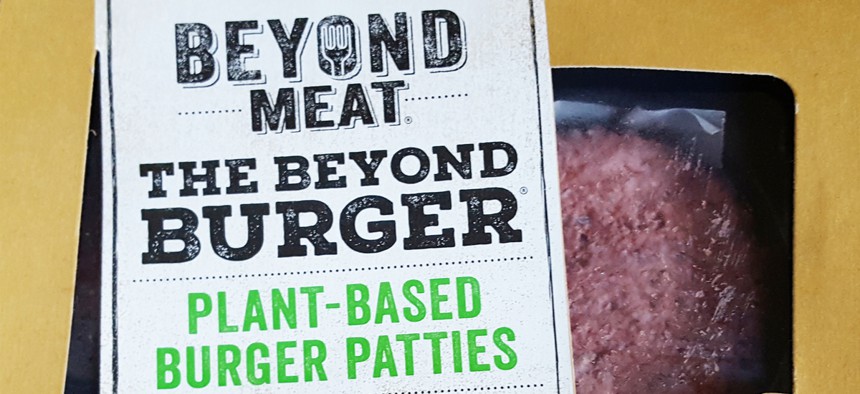‘Fake Meat’ Battle Spreads to More States

Shutterstock
All of the bills are aimed at the same purpose—keeping non-meat products from being viewed and purchased as beef.
This article was originally published by Stateline, an initiative of The Pew Charitable Trusts and was written by Elaine S. Povich.
A handful of states are lining up to follow a recent Missouri law that prohibits non-meat products, such as those made from tofu or vegetable sources, from being labeled to make it seem like the product comes from beef.
So far this year, state legislators in Virginia, Nebraska, Tennessee and Wyoming have filed bills to stop what they say is deceptive labeling of non-meat products. Beef producers generally back the legislation, while vegetarians and producers of plant-based food oppose it.
The Nebraska bill aims to prevent companies from labeling plant-based, insect-based or lab-grown products as “meat.” The Wyoming bill would outlaw “misrepresenting a product as meat that is not derived from harvested production livestock or poultry.”
Under the Virginia bill, a product would be deemed “misbranded” if it “purports to be” meat while containing no meat, unless it contains the word “imitation” on the label.
And in Tennessee, a bill would prohibit “misrepresenting as meat or poultry a product that is not removed from the carcass of slaughtered livestock or poultry.”
All of the bills are aimed at the same purpose — keeping non-meat products from being viewed and purchased as beef.
In Nebraska, Democratic state Sen. Carol Blood, a vegetarian, is sponsoring a bill that would include deceptive meat labeling under the existing state deceptive trade practices law.
“This is about unethical marketing,” she said in an interview. “This is not about wanting to be the word police. We’re not going after ‘veggie burger’ or ‘Tofurky.’ We’re interested in companies that engage in deceptive advertising when their products are insect-based, plant-based or are lab-grown food.”
For example, she said, if a company uses beet juice to make a product look like it has blood in it, and then calls it “plant-based meat,” a consumer could complain to the attorney general’s office under her bill.
If found in violation, the company could be cited. She said she was inspired to introduce the bill when she spotted two women at a grocery store meat counter trying to determine what was in a package next to the veggie burger section. “They couldn’t tell,” she said.
Missouri’s law, making it illegal to stick meat-like names on products that aren’t made from meat, was signed June 1. It was to take effect in August. But the makers of Tofurky and the Washington, D.C.-based Good Food Institute filed suit to block its implementation on First Amendment and other grounds.
Cattle ranchers are closely monitoring the Missouri court case as well as state bills. They are especially worried about experiments with cell-based meat, produced in labs. Currently, such beef is too expensive to market, but relatively soon it could compete with traditionally raised livestock. The Nebraska bill includes a prohibition on labeling cell-created food as “meat.”
While Blood said her bill is for consumers, she acknowledged that beef is Nebraska’s biggest industry. And, as a vegetarian, she said she’s not trying to discourage people from eating a plant-based diet. “I don’t make laws for me, I make laws for Nebraskans, and part of what I have to do is protect our No. 1 industry, and that’s cattle in Nebraska.”

NEXT STORY: Getting Tough on Hate Crimes





